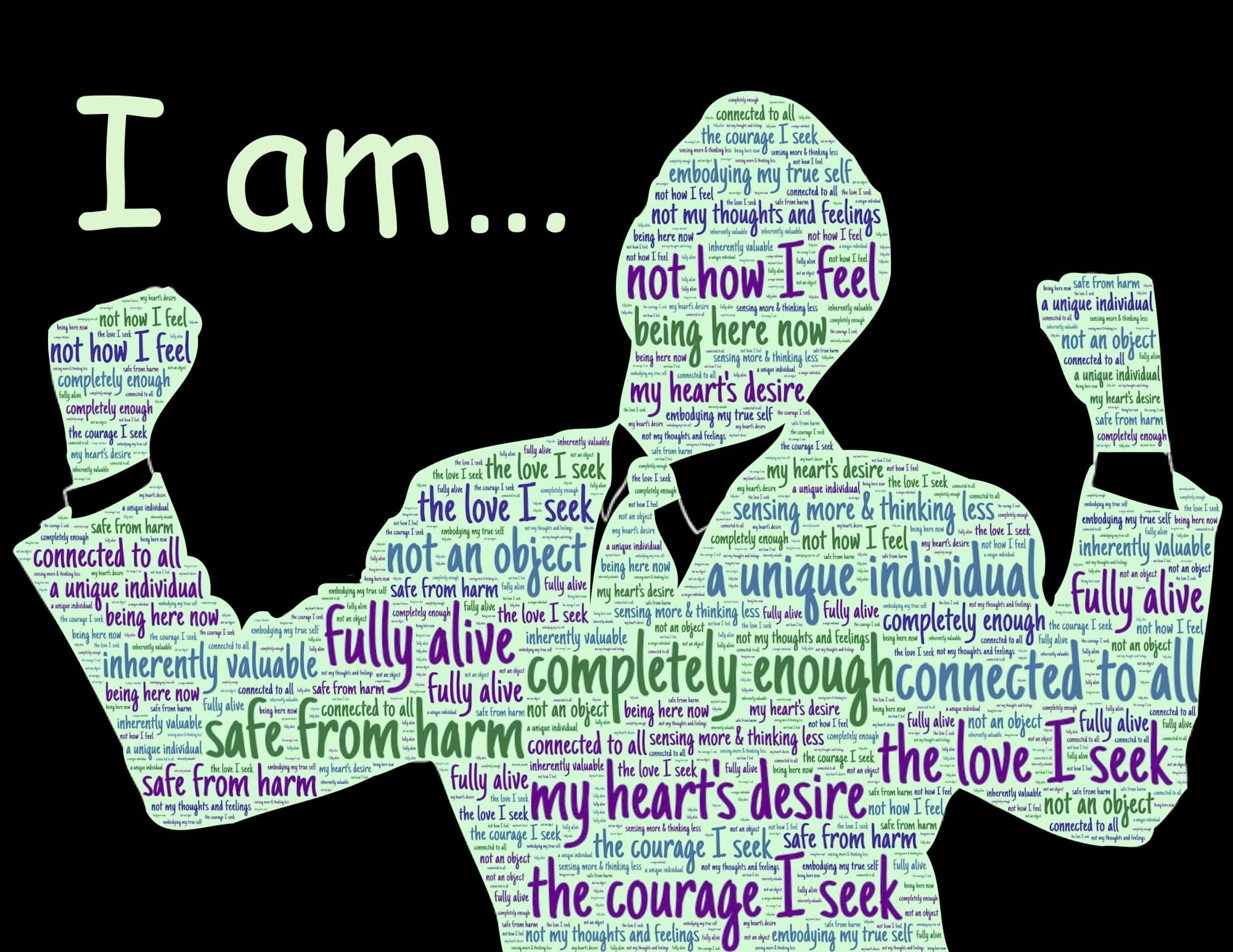Word-Of-the-Week #929: Goodness
May 26, 2022 by Susan Clarke · Comments Off on Word-Of-the-Week #929: Goodness
Goodness– the best or most valuable part of anything; essence.
Can you bring to mind people you have experienced as having goodness?
Once again, Steve Straus, author of STEVE’S 3-MINUTE COACHING, sent a very thought-provoking piece.
Principle: Goodness
(Principles are basic truths that, when applied, cause success to come to you easier and quicker.)
“This S3MC comes in three steps.
First, bring to mind people you have experienced as having goodness. A friend, a leader, a child, someone who exudes an energy of niceness, warmth, quiet friendliness. Goodness has an absence of critical judging and an air of inclusion. In this first step bring to mind people you know who radiate goodness.
Next, think about great masters from the past who have been remembered, in part, because of their radiant goodness. They demonstrated peacefulness, gentle strength in the midst of adversity, and clarity of purpose. Imagine for a moment directly and personally experiencing the goodness from some of the masters. Pause and feel it.
The third step is the big one. In spite of our quite human fears, self-recriminations, guilts, greed, pride, pettiness, and anger – yes, we are far from perfect creatures – in spite of all that, the goodness you have seen in others is universal. The same goodness is in you, too.
Coaching Point: Can you look past your human ‘flaws’ and see the same goodness in you?
See all past issues and subscribe here Steve’s 3-Minute Coaching
Copyright © 2022 Steve Straus, All rights reserved.
This week’s focus is goodness. Do you know anyone who has demonstrated peacefulness, gentle strength in the midst of adversity, and clarity of purpose? How many people in your life radiate goodness?
I LOVE feedback! Join my Facebook community on my FUN-damentals Fan Page.
Word-Of-the-Week #928: Self-worth
May 19, 2022 by Susan Clarke · Comments Off on Word-Of-the-Week #928: Self-worth
Self-worth – the sense of one’s own value or worth as a person; self-esteem; self-respect.
Did you grow up with a controlling parent who knew what was best for you? Have you ever worked for a controlling boss?
This week features long time subscriber and friend Joe Moran who had this to say in response to WOW #923 on being transparent.
“It took me a while to say what I wanted in my life.
A big part of the problem growing up was that I had a very controlling father. While in some ways he had good intentions, he felt that he always knew best for me.
In my first job out of college I had a boss with the same type of controlling mindset who also felt he knew what was best for me. Since I was still living at home, this combination made it feel like I was living between a rock and a hard place.
By the time I reached my third job, I was starting to feel much more confident in not only my abilities as an editor, but in my self-esteem.
There was one incident in particular that summed it up for me.
On a Friday afternoon the page artist showed up for the first time all week. My boss expected me to work on Saturday. I told him that I was going to be out of town that weekend. My boss threw a tantrum and started banging doors. I held my ground. I was certainly not going to come in on a weekend to accommodate someone who was not pulling his weight. After that, I never had a problem with that boss.
In my next editing position at Pizza and Pasta magazine where we first started to get acquainted, I had been working for a little more than a year for my entry-level salary of $26,000 a year. This was in 1992. Since I was pretty much responsible for everything that went in each issue, with no staff, I felt I should get a raise.
After one of the office meetings I decided to stay behind in the conference room with the boss to make my case. When I had confidently finished, he gave me a $10,000 a year raise.
At that time, I felt very confident and my self-esteem was such that I knew my self-worth to the magazine and organization.
But the key to all of that was removing the controlling interest from my professional life: my father. Once dear old dad realized that he could not control my professional destiny, he finally let me live my life without interference. It took awhile, but it finally hit home that I had to live the life I had chosen.”
This week’s focus is on your self-worth. Do you feel confident about your abilities to do your job? How much responsibility do you have at work? Would you feel comfortable asking for a raise that you know you deserve?
I LOVE feedback! Join my Facebook community on my FUN-damentals Fan Page.
Word-Of-the-Week #927: Trends
May 12, 2022 by Susan Clarke · Comments Off on Word-Of-the-Week #927: Trends
Trends – business changes expected to continue to grow within coming years.
Have you changed jobs in the last two years? Was it because of burnout? Do you feel open and honest communication with management?
This week features “Top Workplace Trends to Watch For in 2022” from Businesswire.
“Employees are more likely to quit their jobs in 2022 and prioritize human connection and purpose more than ever before in the world of hybrid work.
- The Great Resignation will persist
New Qualtrics research shows The Great Resignation will continue in 2022. Overall, fewer employees are likely to stay in their jobs in 2022, with 65 percent of workers saying they intend to stay in 2022 compared to 70 percent of workers in 2021. Among all employee groups, individual contributors are the least likely to stay at their companies, with only 62 percent planning to stay in their jobs over the next few years.
Middle managers saw the most significant decrease in intent to stay at their jobs in 2022 with 69 percent intending to stay at their company over the next few years, trending down from 83 percent in 2021. Interestingly, this trend was more pronounced for female middle managers, who are three times more likely to leave within a year than in 2021.
“Leaders are expected to do more than ever before,” says Benjamin Granger, Ph.D., Qualtrics head of employee experience advisory services. “Beyond their day-to-day responsibilities, managers also need to support their employees’ mental health, be culture champions and make progress on diversity, equity, and inclusion efforts. This work is all critical toward creating amazing places to work, yet it’s simultaneously resulting in burnout. Now is the time for organizations to invest in nurturing their leaders and equipping them to care for themselves, so that they can care for others.”
- Employees expect better in-office and remote work experiences
Hybrid work is here to stay. More than one in three (35 percent) workers say they’re more likely to search for a new job if they are required to return to the office full-time. However, employees are underwhelmed by their current technology and office experiences. In fact, only one in three (30 percent) employees said their experience with their company’s technology exceeds their expectations and only one in four (23 percent) feel their experience working at their office exceeds their expectations.
“There’s clearly a disconnect between the experiences employees expect and what employers are offering in hybrid work environments,” said Granger. “The value of offices has evolved from simply being places for people to work from to creating opportunities for collaboration and socialization. Understanding what people need to be effective and efficient in their roles is essential for curating workspaces that will encourage employees to bring their best selves to work.”
- Employees want to see real action toward DEIB (Diversity, Equity, Inclusion and Belonging)
Many organizations made public commitments to improve corporate diversity, equity, inclusion and belonging, and employees expect real progress. Our research shows that 70 percent of employees say their organizations have made sufficient progress towards greater DEIB and 67 percent believe senior leaders’ actions show commitment to improving DEIB. Interestingly, the biggest response differences to these questions were not by ethnicity or gender, but by level. Four in five (80 percent) senior leaders say their actions show they are genuinely committed to greater DEIB, while only three in five (58 percent) individual contributors say the same.
- Prioritize long-term employee well-being
With the rise of hybrid and remote work, the lines between work and life continue to blur. Nearly one in three (29 percent) employees won’t always take a sick day, even if they aren’t feeling well enough to work, and among those employees, two in three (61 percent) cite workload as the reason why. And while employees aren’t working, one in five (20 percent) workers often worry about work problems during their personal time.
To better understand employees’ well-being, Qualtrics asked employees about their self-confidence at work, the relationships they have with their colleagues and how energized they feel in the workplace The trends among these three measures indicate the mixed impact the pandemic has had on working life. Employees have felt more energized, increasing by five percentage points year over year, which is supported by the fact that half (50 percent) of employees feel their physical and mental well-being has actually improved while working remotely.
However, the level of trusting relationships employees have with their colleagues has dropped by three percentage points year over year, indicating that fostering strong human connections should continue to be a priority for organizations. In fact, open and honest communication was the top driver of well-being in our study.
This week’s focus is on workplace trends. Do you feel encouraged and supported in your workplace? Does management have realistic expectations regarding job skills? Do you feel you’re expected to do more than ever before?
I LOVE feedback! Join my Facebook community on my FUN-damentals Fan Page.
Word-Of-the-Week #926: Healing
May 5, 2022 by Susan Clarke · Comments Off on Word-Of-the-Week #926: Healing
Healing – easing or relieving emotional distress.
Have you ever felt that you didn’t fit in with the “norm?” Have you ever suffered from depression or felt “stressed out” for long periods of time? Did you know that there may be something therapeutic in nature beyond exercise and relaxation?
This is last part of “Feeling Awe May Be the Secret to Health and Happiness” from the Parade article by Paula Spencer Scott. She writes,
- The healing potential of awe.
Though this is still pretty new science, it’s already being applied to the real world. At Newcomers High School in Long Island City, N.Y., Julie Mann takes her students on “Awe Walks” to connect with nature or art. When they write about these experiences and share them in the classroom, she says, kids who never talk in class or pay attention come to life. “It helps them feel less marginalized, with a sense that life is still good,” she says.
Kids and grown-ups alike have fewer chances these days to find such transformative moments. We’re increasingly stressed, indoors, plugged into devices and less tightly connected to neighbors and friends. Could more awe be just what the doctor ordered?
Bare thinks so. He credits backpacking and rock-climbing trips with nothing less than saving his life. “I literally climbed out of depression,” he says.
In 2010, not long after that Druid Arch hike with his brother, Bare and fellow vet Nick Watson co-founded Veterans Expeditions to get other returning soldiers (from all eras) outdoors. Like him, they reported relief from PTSD.
Fascinated, Bare sensed that there may be something therapeutic in nature beyond exercise and relaxation—something like the psychological and social shifts that awe brings. Now the director of Sierra Club Outdoors, the arm of the environmental group that organizes wilderness trips for groups, he’s partnered with UC Berkeley to form the Great Outdoors Lab to document nature’s impact on the mind, body and relationships.
We can’t all experience the ultimate awe of viewing the Earth from space, be we can do the following: 1. Drop the devices and gaze at the clouds or stars. 2. Visit a local, state or national park. 3. Take an Awe Walk in your neighborhood, noticing things as if for the first time. 4. Describe to a friend or write about a time you once felt awe. 5. Visit a museum or planetarium. 6. Get up early to watch the sunrise. 7. Play amazing music (Beethoven’s Fifth comes up often.) For me it would be Ravel’s Bolero or anything Rolling Stones! |
Early studies have taken veterans and underserved adolescents white-water rafting. Subjects showed measured improvements in psychological well-being, social functioning and life outlook. “Veterans’ stress dropped by 30 percent. It’s a compelling pattern,” says researcher Craig Anderson.
In fact, Bare has a prediction: “In a few years, you’ll go to the doctor and, as part of treatment for trauma, you’ll get a prescription to get some hiking boots or go on a rafting trip.”
Meanwhile, he has a new source of transcendence every bit as wham! as Canyonlands’ red-gold spires: his baby daughter, Wilder.
Awesome name, right?
This week’s focus is on the healing power of awe. Can you imagine what it would feel like to experience nature for the first time? When was the last time you experienced one of the 7 Ways to Find Awe? Have you done any other “everyday things” that were awe inspiring?
I LOVE feedback! Join my Facebook community on my FUN-damentals Fan Page.





